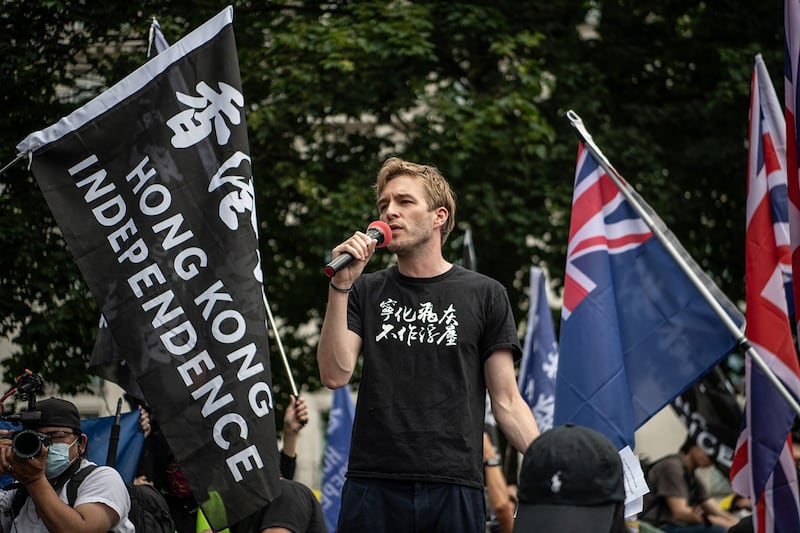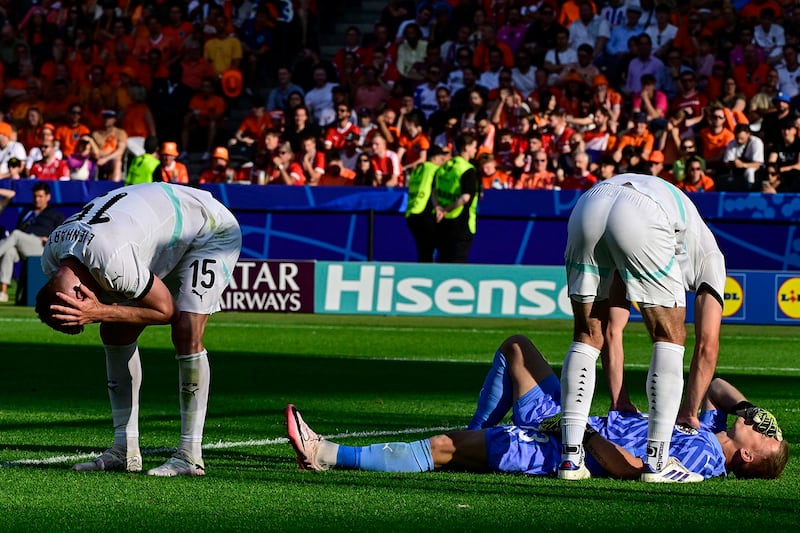Human rights activists have criticized organizers of the 2024 UEFA European soccer tournament for forging sponsorship contracts with Chinese companies whose supply chains have been found to use Uyghur forced labor or which have contributed to the surveillance of Uyghurs.
Advertisements for the companies -- Hisense, BYD and Alibaba -- appear in arenas and in material related to the tournament, which is being hosted by Germany from June 14 to July 14.
“Unfortunately, the lure of Chinese money has been too strong for many of those who could possibly receive that money," Executive Director of Inter-Parliamentary Alliance on China, or IPAC, Luke de Pulford said.
"It's been too strong for them to resist, regardless of the fact that many of those companies are embroiled in forced labor and have major issues in their supply chains," he said. “So I think it's greed, unfortunately, over fundamental rights. That is the basis of the problem here.”
A March 2020 report by the Australian Strategic Policy Institute, or ASPI, found evidence that 82 well-known global brands, including Hisense, China's largest television manufacturer, and electric car manufacturer BYD, used parts produced by Uyghurs living and working in conditions that strongly suggested forced labor.
Alibaba, whose unit Alipay is a sponsor, offers facial recognition services to its cloud customers that enables them to detect Uyghurs, according to IPVM, which tracks video surveillance around the world.
RFA contacted Hisense, BYD and Alibaba for comment on Tuesday but had not received any response by midday Wednesday.

Since 2017, China has rounded up an estimated 1.8 million Uyghurs in Xinjiang and transferred them to concentration camps, where they have been forced to work on nearby farms and factories.
China denies the human rights abuses and says the camps were vocational training centers and have since been closed.
‘Take this seriously’
When contacted for comment about the selection of corporate sponsors, the UEFA media department said it “takes this topic very seriously.”
Organizers “have been adamant that UEFA EURO 2024 shall be a sporting event that commits to human rights as a contributing factor to the success of the tournament,” it said in a statement.
“Together with all relevant stakeholders, a framework and processes designed to uphold and protect human rights at the tournament have been created and will be implemented for everyone involved in the tournament,” it said.
But there was no UEFA comment specifically about the Chinese corporations.

De Pulford said unless pressure is placed on them, Chinese companies will continue to exploit Uyghur forced labor.
“I hope that something changes, but it's not going to change without noise and a lot of campaign,” he told Radio Free Asia. “So let's hope that human rights, due diligence regulations, when they really come in, manage to affect something of a sea change. And it's not going to happen without a concerted cross-party international campaign.”
Governments need to pressure companies in this regard, said Ghaiyur Qurban, the Berlin director for the World Uyghur Congress.
“We condemn this action of the UEFA committee," he said. "We believe that the mixed attitude of Western governments on human rights issues has led to a decrease in the awareness of such international companies and money driven institutions to act according to human values."
“We still believe that the responsibility of the governments is serious in the occurrence of such situations.”
Translated by Martin Shawn. Edited by Malcolm Foster.
